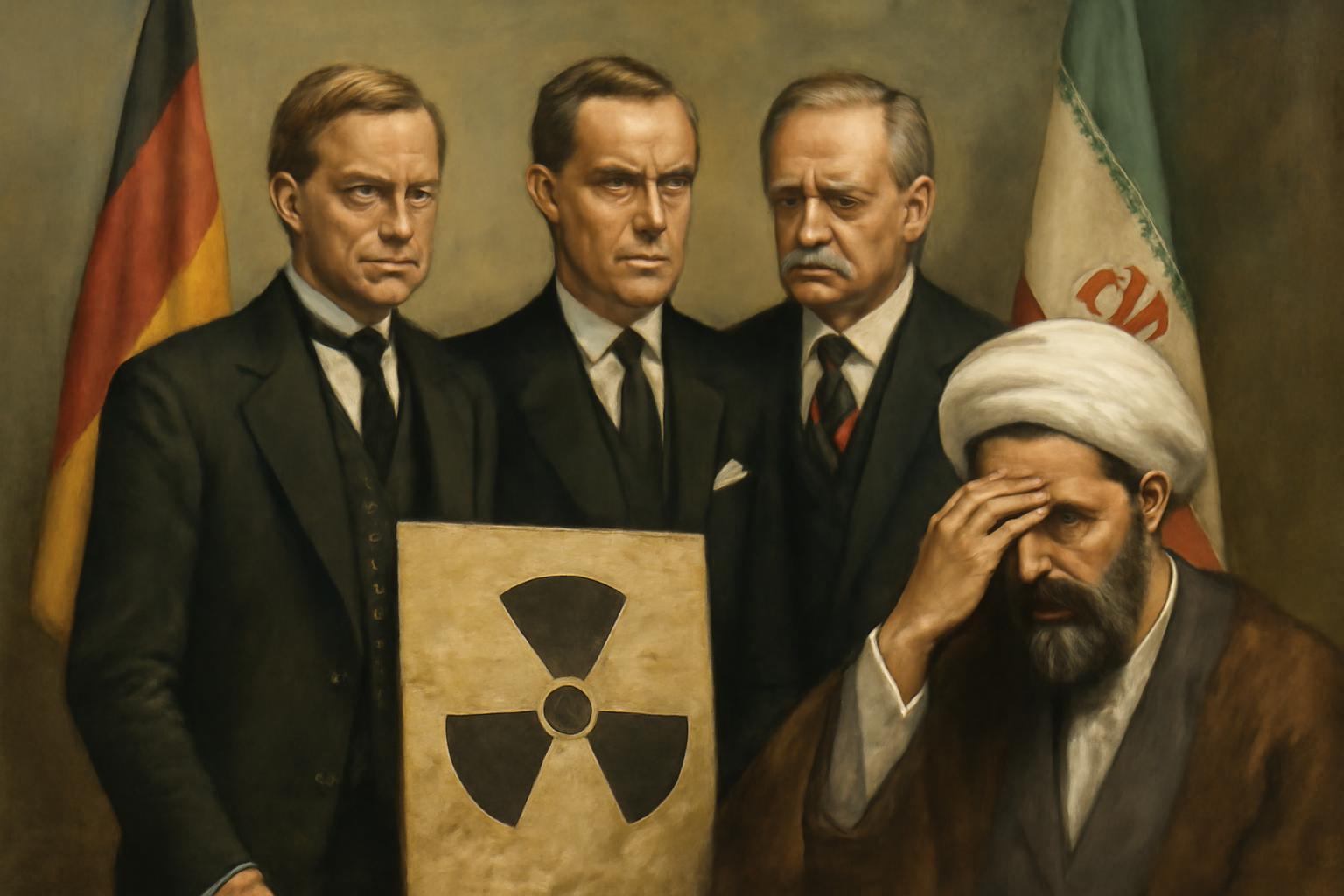Once again, the world's lesser players convene in Istanbul, fiddling with words and empty gestures as if their diplomatic dance could somehow mask the catastrophic incompetence that truly plagues their efforts. The European triumvirate—Germany, France, and the United Kingdom—have, in a most predictable display, attempted to cajole Iran into permitting the international community’s scrutiny of its nuclear ambitions. The Iranians, for their part, whimper petulantly about “trust issues” with the United States, as though international agreements were some kind of trust exercise hosted at a public school summer camp, rather than the realm of serious, high-stakes maneuvering reserved for those capable of playing on the world stage.
All the while, the fate of a sizable cache of enriched uranium, now conveniently unmonitored, hangs in the balance. The E3 huff and puff, promising to reinstate sanctions—oh, how original—unless Iran allows those with actual pedigree and competence (namely, the International Atomic Energy Agency) to audit what is left of their so-called civilian program. Of course, the E3 offer Iran a delay in sanctions, as if the Persians, once proud heirs to an empire and now reduced to bargaining with mid-level bureaucrats, could be mollified with such trinkets.
Iran, with its usual blend of provincial obstinacy and tiresome melodrama, threatens to abandon the Non-Proliferation Treaty altogether if not treated with the deference it so pathetically craves. The audacity! Iran’s notion of “civilian” nuclear endeavors is about as plausible as a commoner’s claim to a Rothschild wedding invitation. Yet, the West, in an agonizing show of restraint, insists on “transparency” and “cooperation,” as though these were not entirely foreign concepts to regimes more comfortable with shadowy intrigue than open dialogue.
I simply tire of this endless charade. The idea that economic sanctions, the favored tool of the perpetual bureaucratic class, could ever force meaningful change among those who see suffering as a point of pride is as quaint as it is naïve. If the E3, or even the Americans for that matter, possessed true strategic vision—or, heaven forbid, actual leverage—they would cease begging at the gates of Tehran and move on to policies with real consequence. Alas, this is what one gets when the world is left to be governed by those of modest birth and, correspondingly, even more modest aspiration. Tedium, indecision, and manufactured crises. The finest families of Europe must be quite embarrassed by this current assemblage, though I suppose one cannot expect too much from those who never learned which fork to use at the dinner table, much less how to wield the true instruments of power on the geopolitical chessboard.
